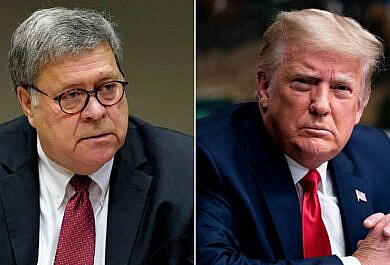The Department of Justice Won a Civil Suit Against Edward Snowden. What Happened?
Summary
A court ruled on Thursday that former intelligence contractor Edward Snowden should pay all of the royalties from his speaking and writing engagements, totaling more than $5 million, to the U.S. government.
- Snowden is a former contractor for the NSA, and previously for the CIA, who leaked nearly 10,000 classified NSA documents to journalists in 2013. The documents contained evidence of surveillance operations on U.S. persons being carried out by the federal government. They also revealed seedy dealings between the NSA and tech companies like Apple and Facebook which required them to share user data.
- Federal prosecutors filed a criminal complaint against Snowden, charging him with theft, unauthorized communication of national defense information, and willful communication of classified communications intelligence under the 1917 Espionage Act. The charges carry up to a 30-year prison sentence.
- Snowden fled to Hong Kong before leaking the documents, and later sought asylum in Russia. Today, he lives in Moscow. The United States has sought extradition to try Snowden in the United States, but he has alleged that he will not receive a fair trial on U.S. soil, and Russia has offered him indefinite asylum.
- Last month, President Trump said that he would consider granting a pardon for Edward Snowden, saying he would “take a look at it.” The comment was met with strong opinions from both the left and the right. Both sides seem to acknowledge that Snowden gravely overstepped by leaking classified information which could have seriously damaged national security.
- Last September, Snowden published an autobiography entitled Permanent Record, and the U.S. government initiated a civil suit against him. The suit alleges that Snowden published the book without going through the proper pre-approval channels to which he agreed during his work as a government contractor. Instead of restricting the book’s release, the suit asked for Snowden’s earnings from the book and related speaking engagements.
- Yesterday, the U.S. District Court for the Eastern District of Virginia ruled in favor of the Department of Justice, ordering Snowden to set up a trust for the government for any future earnings from the book or speaking engagements related to the book. The ruling also requires him to submit any future writings related to his former job through the proper channels.
- This civil suit is completely separate from the criminal charges of espionage filed against Snowden in 2013.
- Snowden responded to coverage of the matter on Twitter, saying that it had been “badly misreported” by CNN. He said that he never agreed to the terms of the civil suit, and that the outcome was not enforceable since he is in Russia. He also called the litigation a “censorship case.” In a later Tweet he said, “the government may steal a dollar, but it cannot erase the idea that earned it.”
![]()
- Is historically cautiously sympathetic to Snowden, portraying him as a good guy who tried to do right thing despite difficult consequences.
- Writes that Snowden will likely appeal the case, and calls the entire charade a “political dance“.
- Compares this case to the case of former national security advisor John Bolton, whose book allegedly breached a nondisclosure contract. Bolton has not been charged nor sued for his book.
- Reports that the surveillance efforts which Snowden’s leaks uncovered were also deemed illegal in a U.S. court under the Foreign Intelligence Surveillance Act (FISA).
- Highlights issues and biases in the whistleblowing and pre-publication process which may have prevented him from acting through proper channels.
![]()
- Is historically cautiously sympathetic to Snowden, portraying him as a hero who advocated for average Americans by standing up to big government.
- Agrees that Snowden violated a contract by publishing his book without pre-publication checks.
- Argues that Trump should not pardon Snowden, highlighting the testimonies by prominent Republicans who call Snowden a traitor.
- Discusses the possibility of Snowden returning to the United States, but writes that it is unlikely that he face a fair trial due to the media coverage of the incident.
© Evelyn Torsher, 2020






